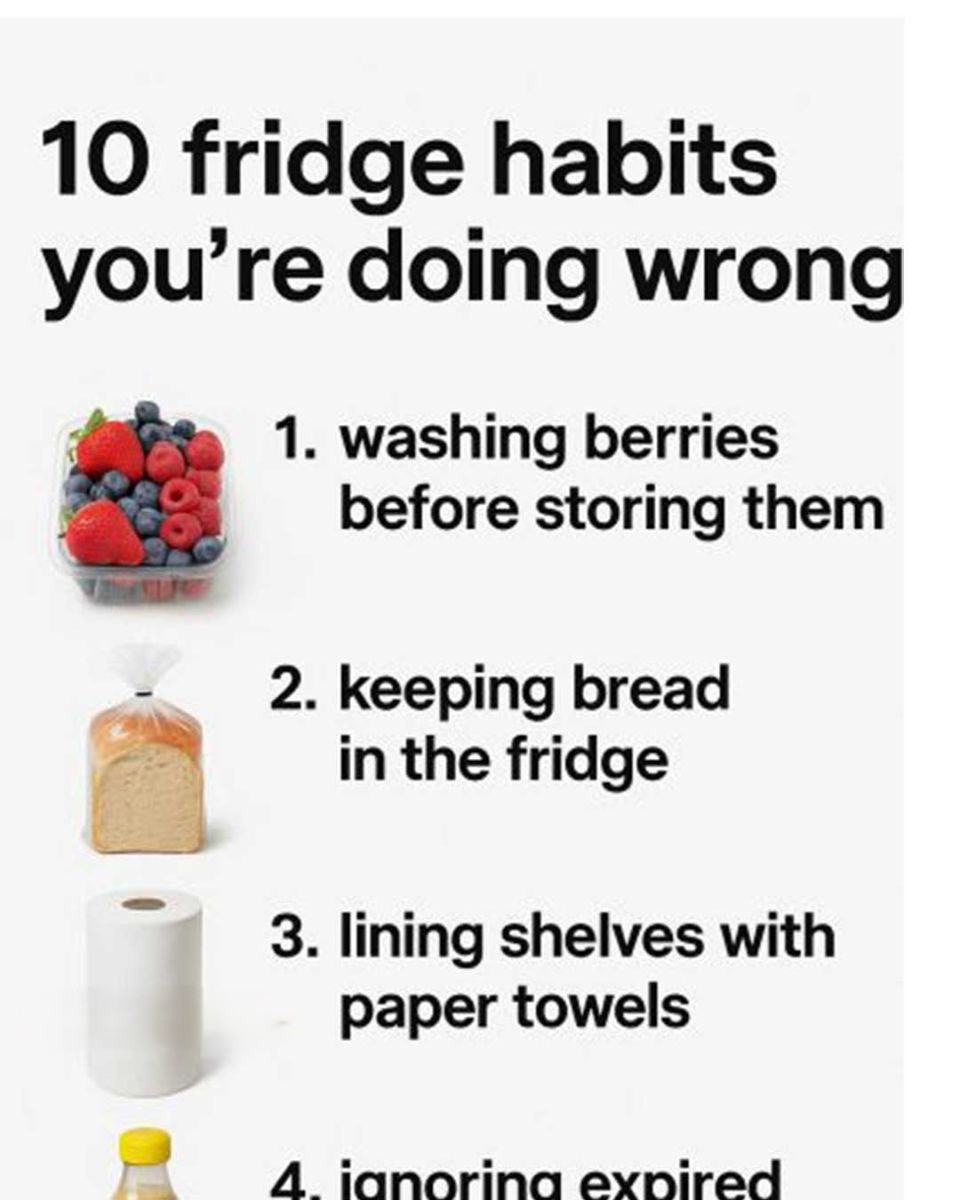Print this recipe
The refrigerator is an essential appliance in every household, yet many of us don’t realize that we might be using it incorrectly. From storing items in the wrong places to neglecting regular maintenance, these seemingly minor habits can lead to food spoilage, wasted energy, and even health risks. By understanding and correcting these common mistakes, you can extend the freshness of your food and increase the efficiency of your fridge.
In this article, we’ll explore ten common fridge habits that you might be doing wrong. With simple adjustments, you can ensure that your refrigerator serves you better, saving you money and time. Let’s delve into these habits and learn how to make the most of your fridge.
1. Washing Berries Before Storing Them
While it might seem like a good idea to wash berries before storing them in the fridge, this can actually lead to quicker spoilage. Washing berries adds moisture, which promotes mold growth. Instead, wait to wash your berries until just before you plan to eat them. If you must clean them in advance, make sure they are completely dry before placing them in the fridge. Use a clean paper towel to gently pat them dry, and store them in a breathable container.
2. Keeping Bread in the Fridge
Storing bread in the fridge might seem like a way to keep it fresh, but it actually speeds up the staling process. The cold temperature causes the starches in bread to crystallize, making it dry and hard. Instead, keep bread at room temperature in a bread box or a sealed bag for up to a week. For longer storage, freezing is a better option. Wrap the bread tightly in plastic wrap or aluminum foil, then place it in a freezer bag.
3. Lining Shelves with Paper Towels
Lining fridge shelves with paper towels might seem like a clever way to absorb spills, but it can actually impede airflow and reduce your fridge’s efficiency. Proper air circulation is essential for maintaining the correct temperature and humidity levels. Instead of using paper towels, clean spills immediately with a damp cloth to prevent them from becoming sticky residues. Regular cleaning keeps your fridge organized and ensures optimal performance.
4. Ignoring Expired Condiments for Years
Condiments often have long shelf lives, but they don’t last forever. Ignoring expiration dates can lead to the consumption of spoiled or less flavorful products. Check your condiments regularly, at least every few months, and dispose of any that are past their expiration date. A good rule of thumb is to mark the opening date on the bottle with a permanent marker, so you can track how long you’ve had it.
5. Overstuffing the Fridge
A crowded fridge restricts airflow, leading to uneven cooling and potential food spoilage. Overstuffing can also make it difficult to find items, increasing the likelihood of waste. Aim to keep your fridge about 75% full, which allows for proper air circulation. Organize items by category and use clear containers to maximize visibility. Regularly remove items you don’t need and plan meals around perishables nearing their expiration date.
6. Improperly Storing Dairy Products
Dairy products are sensitive to temperature fluctuations. Storing milk and other dairy items in the fridge door exposes them to warmer air every time the door is opened. Instead, place these items on the middle or lower shelves, where the temperature is more stable. Cheese should be stored in its original packaging or wrapped in wax paper to prevent it from drying out. Remember to keep dairy products away from foods with strong odors, as they can absorb these smells.
Next Page

